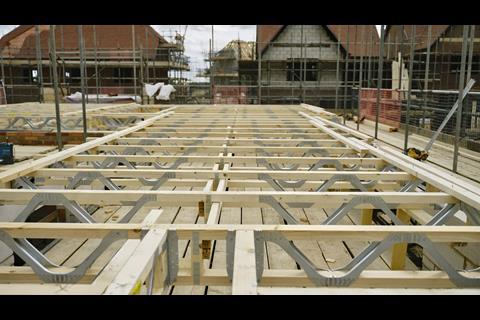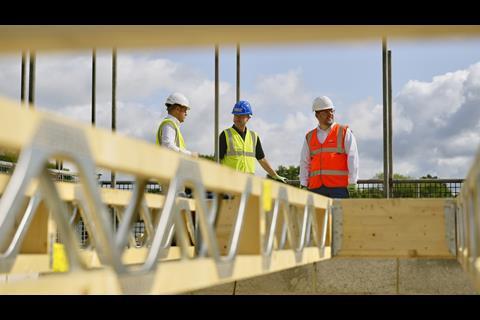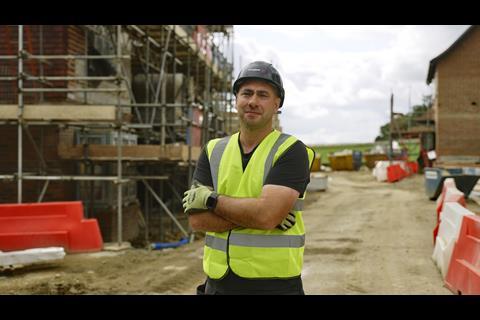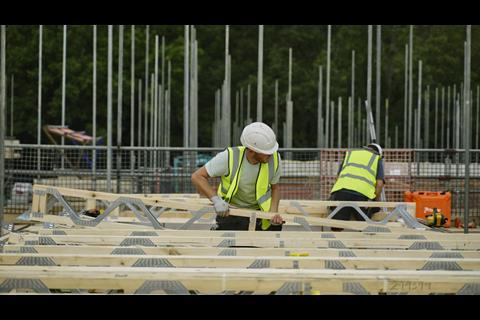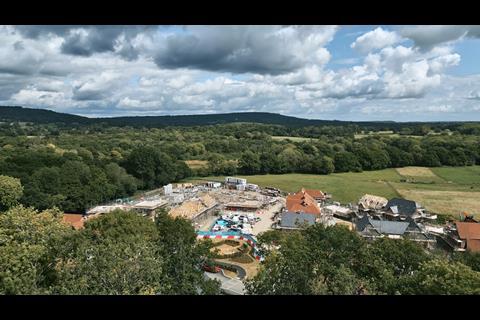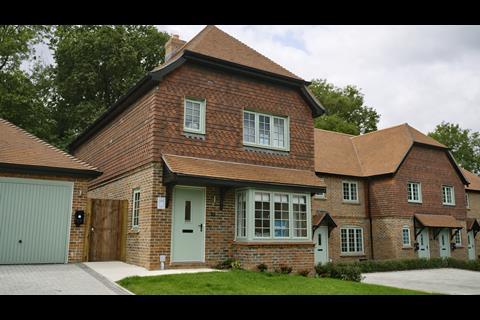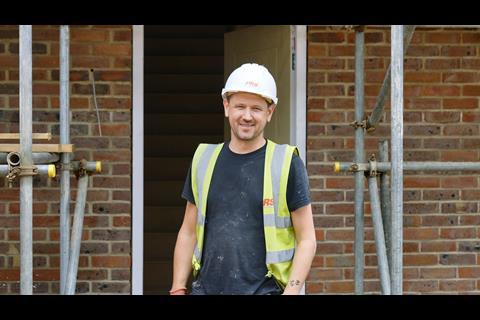Posi-Joist is helping professionals from every trade do their jobs to the best of their ability, saving precious time in labour costs. See the positive impact it’s having on one Surrey development
2025 is coming a lot faster than many realise. With it will come mandatory Future Homes Standard (FHS) compliance for new builds. These regulations will ensure the houses of tomorrow produce 75-80% less carbon.
From heating to hot water systems to insulation, today’s building technologies are being critically re-examined. Alongside other legislation targeting existing homes, these measures should help the UK achieve its 2050 net zero target.
But some housebuilders aren’t waiting until then, in fact, they’re not even waiting for 2025. Builders like Croudace Homes are trialling new technologies and cutting carbon right now, using industry-leading solutions like Posi-Joist, says Croudace Site Manager, Matthew McCourt:
“With the Future Homes Standard, the market for Posi-Joist is going to grow.”
“It’s going to be very difficult to achieve the new regulations using similar products such as I Beams or I Joist.” He says additional room is going to be needed for services to pass through the ceiling void: “We’re going to have a lot more additional services passing through the joists, such as pipework, cabling and additional ducting. At the moment, Posi-Joists are the only product on the market that can facilitate that.”
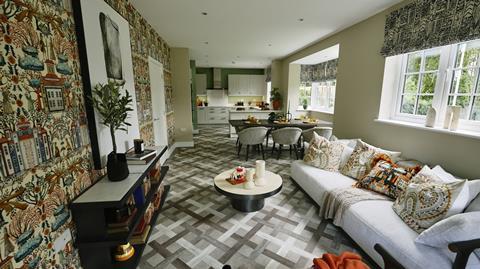
Setting the standard in homebuilding
Founded in 1946, Croudace are five-star residential developers with a strong presence across the southeast. They’re well ahead of the booming nationwide demand for Posi-Joist, having specified it exclusively in their homes for over 14 years. We visited their Firethorn Place project in Ewhurst, Surrey, to find out why.
The housing development has all the Croudace hallmarks - a strong design aesthetic inside and out, maximum green space and high-quality build and specification of materials. Every last detail is considered, and it shows.
At Firethorn Place, joists arrive on site ready to be installed. Made offsite by timber engineering specialist Crendon Timber Engineering Ltd, there is no need even to drill anything. It’s a safer, far more efficient way of working. Croudace homes get a level of consistency and quality which sets them apart. “One of our main priorities is quality” says McCourt:
“Posi-Joist has good dimensional stability so they’re a lot less susceptible to twisting and warping. They have good span capabilities which allows us to plan the layout of our homes better so we can have more open plan living, like the home we’re sitting in now.”
The five-star family housebuilder believes Posi-Joists are much more versatile than other products out there on the market.
“They’re much more adaptable than I-joists. When it comes to the first fix stage inside the property, Posi-Joists are much easier to work with. The electrician and the plumber find it much easier to run their cabling and their pipe work through. And we know it saves time.”
“With the Future Homes Standard, the market for Posi-Joist is going to grow.”
And of course, collaboration sits at the heart of what Croudace do. Different professionals from a range of trades need to do their jobs as quickly and efficiently as possible. Posi-Joist is streamlining the process, going so far as to provide clear zones for each trade’s input. There’s no potential for services to clash over space, a feature which electrician Sam Edwards, from Goring electricals can attest to:
“With an old I-Beam or regular joist, there’s a lot more labour involved. You’ve got to drill out space for things, so you’re producing waste on site. Where does it go? There’s a potential safety concern. Meanwhile, everyone else is doing the same thing so you might end up competing for space. So there are three big benefits; it’s easier, you save time, and you can work together more easily with people doing other jobs.”
Trades are saving about a day or two of installation time each. That translates to incredible time and labour cost savings across a whole development. Installer Mike Armstrong from SCC Carpentry has his own experience of this. And it’s why his team is always pleased to be working on site with MiTek’s joist system:
“Posi-Joist saves around two days of labour per installation. That’s quite significant compared to old-style joists, but Posi is also straighter, and there’s less movement. They’re easier to store safely, too. It’s a better-engineered solution all around.
Only industrywide teamwork can help professionals like these navigate upcoming challenges and new legislation. Partnerships like this are helping get the best components in the hands of the best-qualified people. The result is better, more sustainable housing.
Learn more about MiTek’s Posi-Joist here.



